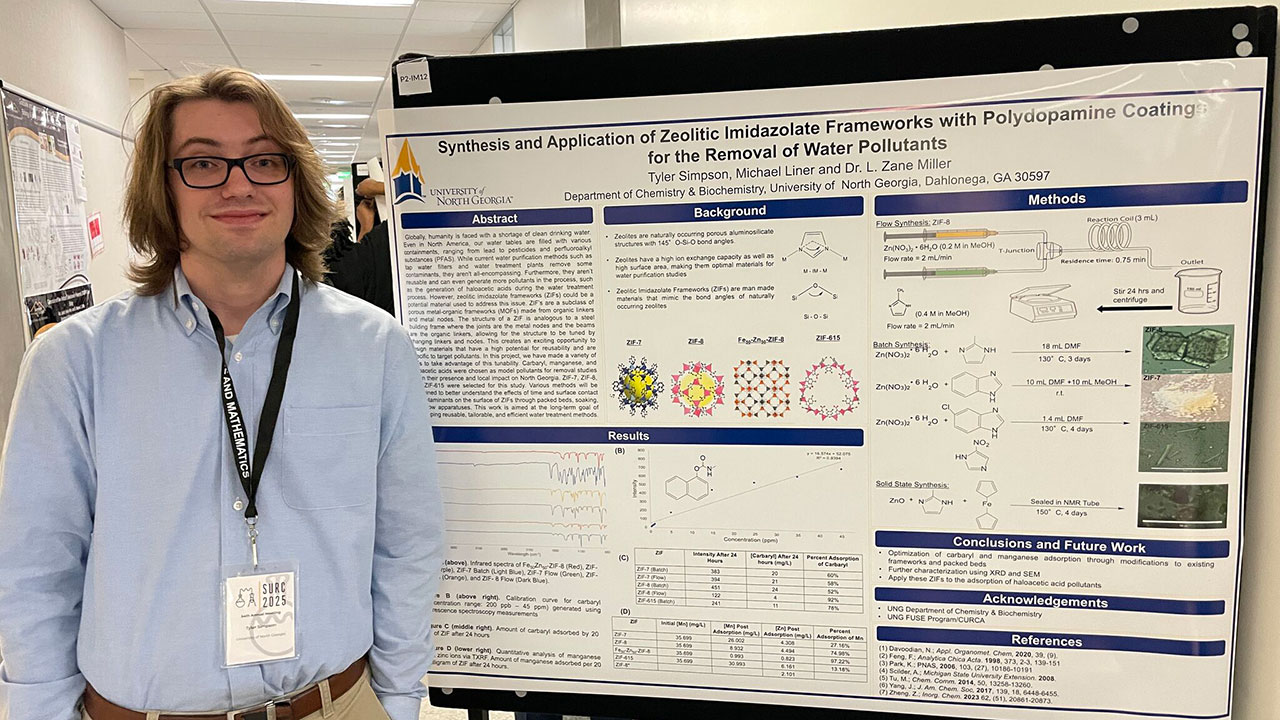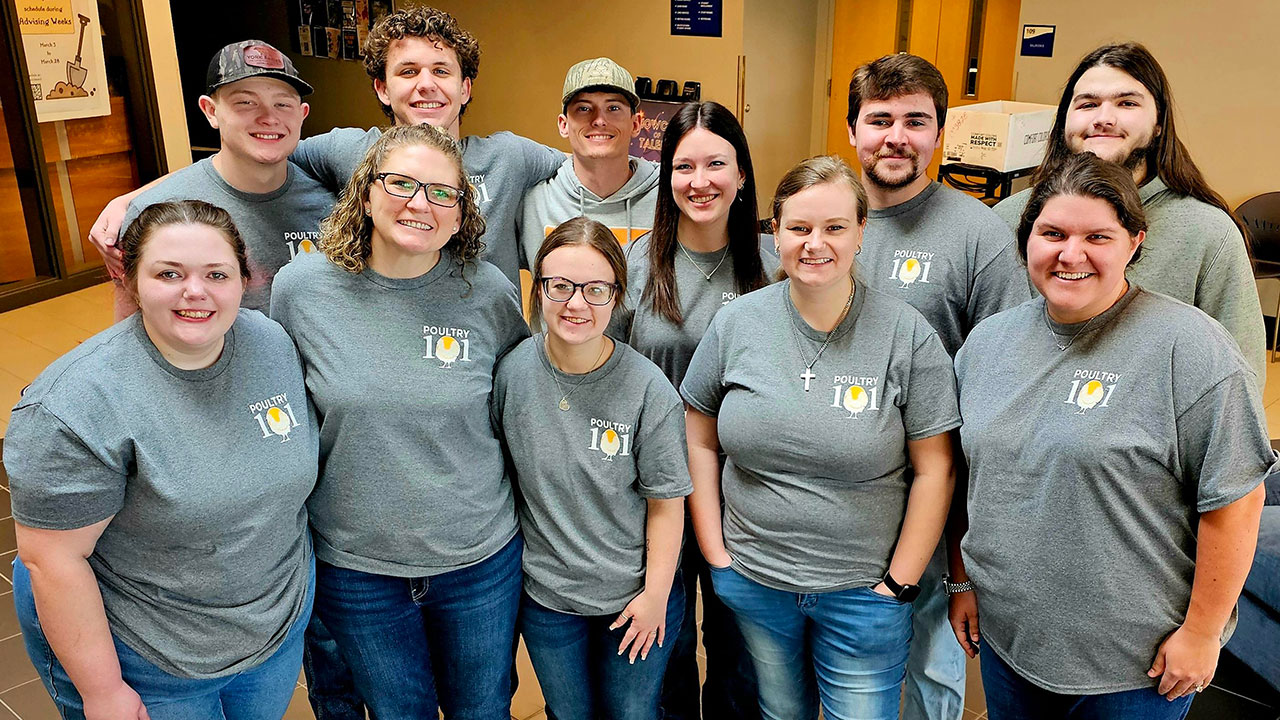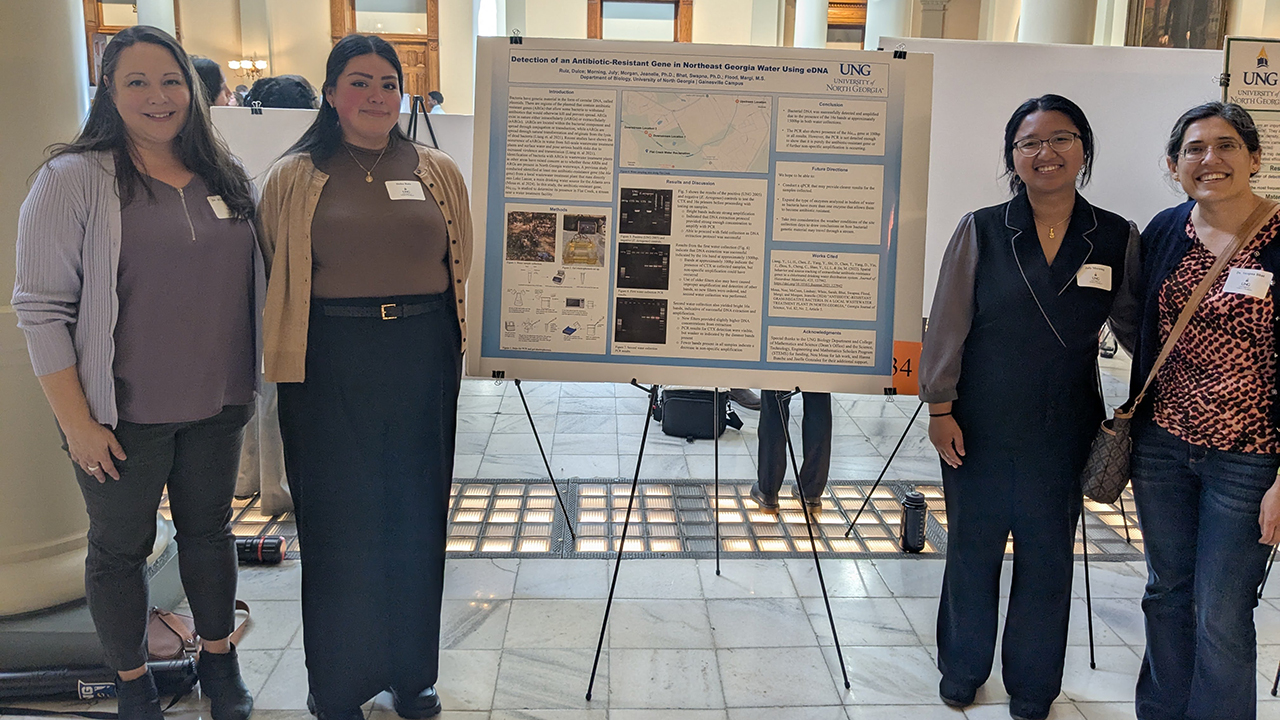Public health event gives students platform to share their work

Article By: Clark Leonard
Dr. Jo Qian is giving about 100 students an opportunity to share what they have learned about human diseases and innovative biotechniques that impact the health field.
The inaugural University of North Georgia (UNG) Public Health Awareness Day is set for noon to 2 p.m. Nov. 7 in front of the Student Center on UNG's Gainesville Campus. If it rains, the event will be from 2-4 p.m. in the Robinson Ballroom at the Student Center.
Topics of poster presentations will include a variety of skin, bone, muscle and nervous system disorders. Courtney Allen, district health educator from the District 2 Public Health Department in Gainesville, will also be on hand to discuss her office's services.
"Most students think to learn anatomy and physiology is to memorize a zillion medical terms. By doing the presentation, students are trained to develop some higher-order learning abilities," said Qian, lecturer of biology at UNG. "For example, they are required to understand the cause of a disease, apply terms to describe the progress of a disease, and compare different treatments according to subtypes of a disease."
Qian said the efforts of Dr. Jeanelle Morgan, associate professor and associate department head of biology; Dr. Cathy Whiting, professor of biology; Dr. Shannon Kispert, assistant professor of biology; and Dr. Neal Lin, limited-term faculty in biology, and many other faculty members have made the event possible.
The event will offer students the opportunity for peer review.
Robert Griffeth, a pre-dental student from Jefferson, Georgia, is looking forward to sharing his work with the public for the first time. His group is making a presentation about epilepsy.
He said it's a chance for students to share what they're passionate about. Having his peers review his work is also a motivator for Griffeth, who already has a business degree from the University of Georgia.
"We want to be competitive with other groups and start establishing our validity as health professionals," Griffeth said.
Julia Kim, a sophomore biology major from Buford, Georgia, and her group are presenting about scoliosis. She welcomes the constructive criticism her group will receive, as well as knowing where it excelled.
"It is important for the university and my fellow peers to hear about what I am learning in order for them to also expand their knowledge, and to see how much passion we have for acquiring new information that matters greatly in the everyday lives of people with health problems," Kim said.
Abigail Bourgeois, a sophomore nursing major from Cleveland, Georgia, said the peer review will allow students to gain another perspective on their work.
Bourgeois said biology classes offer information about muscle cells and skeletal systems, while these projects aid students in "actually seeing it in diseases and how it affects people in their everyday lives."
"It's very important that students are able to see the practical side of what we're learning in the classroom," Bourgeois said.
Cameron Ragland is a 2014 UNG graduate taking post-baccalaureate prerequisites in hopes of being accepted into UNG's physical therapy graduate program. His group is planning to present on syphilis. He feels that students presenting to each other makes for a low-pressure dynamic.
"You're more or less teaching each other," Ragland said. "It feels more relaxed and natural."
Qian said those type of interactions are valuable for students.
"Peer evaluation is an effective way of assessment because you provide each student with much more feedback in a large cohort, and it also serves as a peer learning opportunity," Qian said. "It allows students to strengthen their academic skills by giving and receiving feedback among peers, and it teaches them how to hold professional norms in judging peers, which I think is an essential skill for their future careers."



